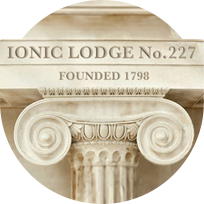Freemasons donate almost £5m to help UK overcome the pandemic
The United Grand Lodge of England (UGLE) has awarded more than £4.7m through four Covid-19 relief programmes, focusing on community support, food support, domestic abuse, homelessness and mental health.
Covid-related donations from Freemasons began in 2020 and since then they have contributed a total of £4.7m to help those in need. The donations are being used to help communities in various critical areas, including foodbanks, support for unpaid carers, personal protective equipment (PPE), schools, mental health, homelessness, supplies for hospitals and hospices, domestic abuse, tablets, funds for NHS workers, ambulances and equipment.
To support the community, Freemasons also worked 18 million hours as volunteers in a range of different areas where there was a need, including driving vulnerable people to hospital, preparing meals, taking care of people at risk and organising care packages, as well as producing scrubs, PPE and hand sanitiser.
The UGLE, governing body for Freemasons in England and Wales, helped to provide essentials to vulnerable people and those that were shielding, activity packs for isolated older people and young children, podcast recordings for those affected by vision impairment. They also donated care packages for care home and NHS staff, hardship grants for those in need, home comforts for Covid-19 patients, and transport and equipment provision for medical professionals responding in the community.
In addition, at least 141,150 visors and face masks have been donated, alongside more than 3,000 sets of scrubs and gowns to hospitals, care settings and hospices. Also, more than 130,000 meals have been provided for those in need and approximately 60 food banks have been supported.
Meanwhile, to help protect women and children from domestic abuse, Freemasons donated more than £165,000 in 2020. During the Covid-19 lockdowns, the donations helped more than 2,000 women, with parcels containing essential items for those fleeing domestic abuse.
To support mental health issues, more than 130,000 children and young people are currently being supported by the Freemasons. Alongside this, almost 1,400 adults benefited from better support. The programme is assisting those in need by giving 100,000 children and young people access to information, support and guidance online.
In addition, children are also being supported with mentoring and skills workshops. Teachers, professionals and parents are being supported via three projects, offering mental health first-aid training, learning events and parental support.
Concurrently, Freemasons are supporting homeless people with more than 30 different initiatives. A total of 39 charities have been helped. Of these, 15 individual Emmaus organisations have received grants. The funds have provided accommodation to 1,080 individuals, while 300 people have been supplied with food daily and 250 with food weekly. They have also been given access to services such as counselling, and employment and training opportunities.
Elsewhere, to support thousands of families struggling during the crisis, Freemasons donated 300,000 meals and 38 tonnes of food to homeless people, women’s refuges and vulnerable people, supporting more than 120,000 individuals in total. Moreover, £560,000 was donated to provide meals and help numerous foodbanks.
Dr David Staples, chief executive of the UGLE, said: “During these last two years, we set out to donate at least £3m to Covid-related causes and we have exceeded our expectations by donating almost £5m. It is with great pride that I see all Freemasons have rolled up their sleeves and worked hard to do their best and help those most in need.”
He continued: “Our response to the pandemic shows what Freemasonry is all about; supporting those in need, giving back to our communities and volunteering where it can make a real difference. Freemasons have been doing this for more than 300 years, and I am proud of the time and commitment that our members have given to support the nation in its fight against Covid-19.”
